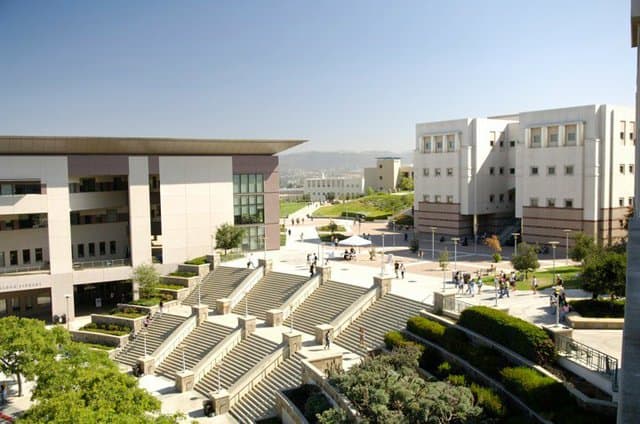Cal State San Marcos mathematics professor Kamel Haddad and psychology professor Anna Woodcock were recently awarded a three-year, $830,000 grant from the NIH’s National Institute of General Medical Sciences for a research project called Families for STEM Success.
The project is a fusion of Haddad’s vision to educate families to help their children in science, technology, engineering and mathematics (STEM) majors and Woodcock’s program of social psychological research on balancing stereotypically incompatible identities.
The grant will provide a rigorous test of a new Spanish-language workshop series for families of incoming first-year STEM majors. CSUSM will offer customized workshops designed for families to understand the value of a science degree, the compatibility between scientific research and Latinx heritage, and the support systems students need to be successful in the first year of college and graduate with a biomedical sciences degree.
“The idea is not that we want one cookie-cutter picture of what a scientist looks like and all conform to that picture,” Haddad said. “We want to see diversity in the ranks of the population that succeeds in science. That is the message we’re trying to promote across the country – that it is possible to succeed while retaining your identity, whatever that identity is.”
Haddad has enlisted the Parent Institute for Quality Education (PIQE) to help create a series of workshops for the families of incoming science majors, and a rigorous longitudinal research study will track student outcomes across students’ freshman and sophomore years. There will be two control groups tracked alongside the students whose families graduate from the workshops to determine the direct impact of the intervention and gauge how much it improved academic outcomes such as persistence, grade-point average and staying in STEM.
“We do not want an increase in STEM or science identity to come at the price of backing away from a racial/ethnic identity,” Woodcock said. “Our whole intervention is about changing part of the social context, which in this case is the family, that supports the idea of building an identity as a Latinx scientist – that those two things are completely compatible. Rather than intervening with the students, we’re intervening with the families, teaching them about science and how being a scientist can be a rewarding career that helps people and is not at all incompatible with a Latinx heritage.”
Woodcock said other Hispanic-serving institutions with large commuter populations across the U.S. could also benefit.
“Once we can provide empirical evidence about the impact of the intervention and why it works, it could help tens of thousands of Latinx students in STEM majors succeed,” she said.
About California State University San Marcos
Building on an innovative 30-year history, California State University San Marcos is a forward-focused institution, dedicated to preparing future leaders, building great communities and solving critical issues. Located on a 306-acre hillside overlooking the City of San Marcos, it is the only public four-year comprehensive university serving North San Diego, Southwest Riverside and South Orange counties.
The university enrolls more than 16,000 students. With approximately 2,000 employees, the institution is a Great College to Work For® (The Chronicle of Higher Education). As a recipient of the annual HEED Award since 2014 — a national honor recognizing U.S. colleges and universities that demonstrate an outstanding commitment to diversity and inclusion — CSUSM is committed to creating a diverse and inclusive environment.


















